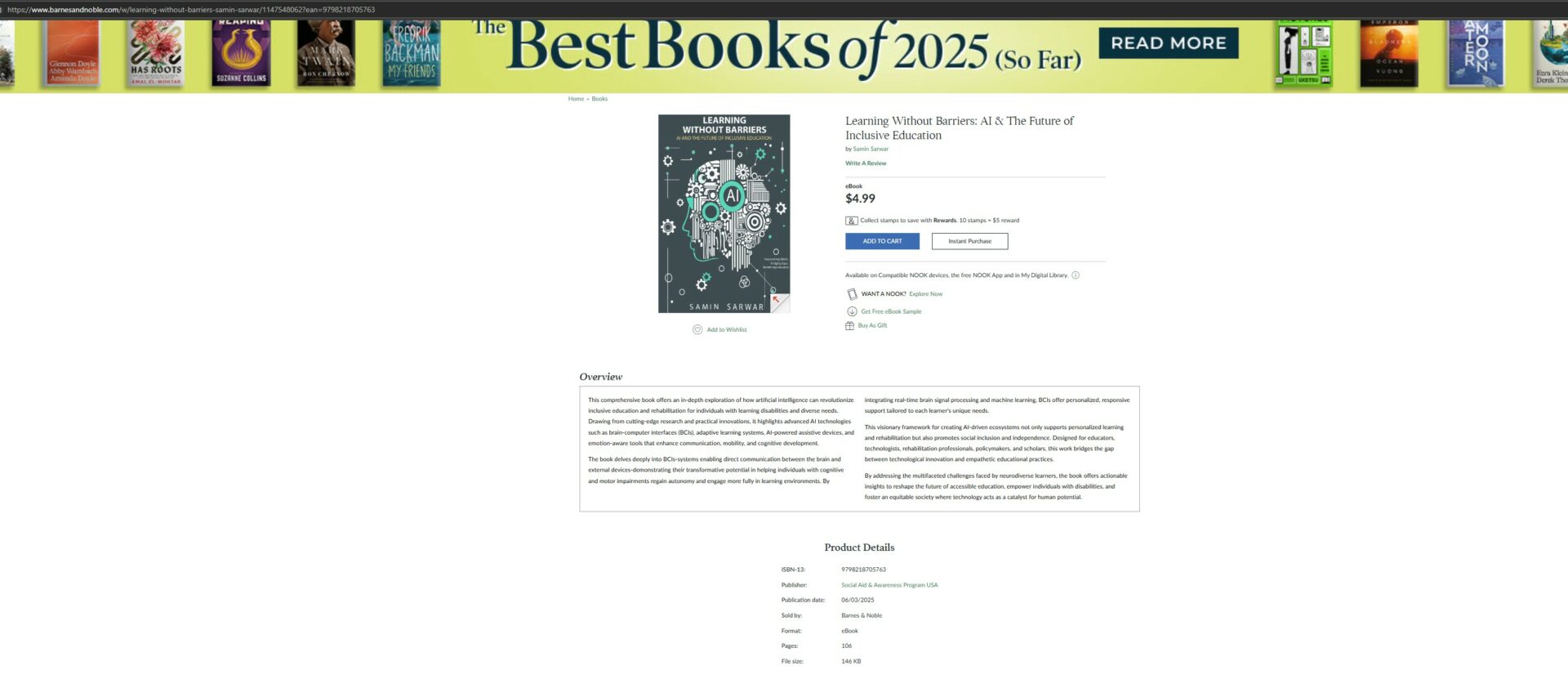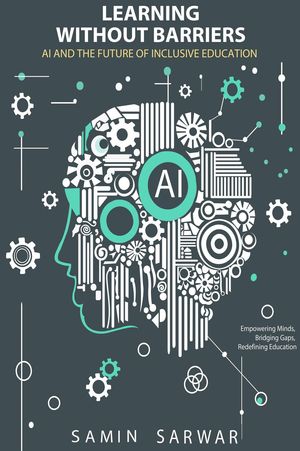We’re excited to introduce you to the always interesting and insightful Samin Sarwar. We hope you’ll enjoy our conversation with Samin below.
Hi Samin, so excited to talk about all sorts of important topics with you today. The first one we want to jump into is about being the only one in the room – for some that’s being the only person of color or the only non-native English speaker or the only non-MBA, etc Can you talk to us about how you have managed to be successful even when you were the only one in the room that looked like you?
Being the only one in the room who looks like me has never been easy, but it’s pushed me to lead with purpose and resilience. Coming from a background that’s underrepresented in both tech and education reform, I realized early that visibility comes with responsibility. I learned to stay grounded in my work, build credibility through consistency, and communicate with clarity—even when I had to work twice as hard to be heard.
My journey led me to write a book titled Learning Without Barriers: AI & The Future of Inclusive Education. It’s a reflection of not just what I know, but what I believe: that technology, when built with empathy and purpose, can level the playing field for millions. That book, and the recognition it’s received globally—including from my home country and international peers—has helped me bring something unique to every room I enter: not just representation, but vision.
Success in those spaces isn’t just about fitting in—it’s about owning your difference, using it to drive impact, and opening doors for others who’ll walk through after you.

Great, so let’s take a few minutes and cover your story. What should folks know about you and what you do?
Thank you for the opportunity to share my story. My professional journey sits at the intersection of innovation, education, and advocacy. I’m the author of Learning Without Barriers: AI & The Future of Inclusive Education, a book that reflects my deep commitment to using technology to create equitable opportunities for all learners—especially those with disabilities or barriers to access.
Professionally, I’ve spent over 17 years serving on the board of a nonprofit focused on social impact, and in recent years, I’ve shifted my focus toward leveraging artificial intelligence and assistive technologies to drive systemic change in education. What excites me most about this work is its potential to amplify human capability—to give a voice to those who may not speak, and to create customized learning environments where no child is left behind simply because of a disability or difference.
The book itself is more than a publication—it’s a blueprint. It explores how AI can be used responsibly in education, integrates insights on brain-computer interfaces, and outlines how we can build inclusive systems that support neurodiverse learners. The book has been recognized by leaders in both academic and policy circles, and I recently signed a joint venture with a U.S.-based nonprofit to translate this work into real-world pilot programs.
Looking ahead, I’m focused on launching a model center for inclusive innovation—a space where technology, research, and community come together to pilot and scale accessible education and rehabilitation tools. We’re also exploring partnerships with universities and NGOs to extend this work globally.
At its core, my work is about redefining what’s possible when empathy meets innovation. If there’s one message I hope to leave behind, it’s this: inclusive technology isn’t a luxury—it’s a human right. And when we design with everyone in mind, we build a better world for all of us.
Looking back, what do you think were the three qualities, skills, or areas of knowledge that were most impactful in your journey? What advice do you have for folks who are early in their journey in terms of how they can best develop or improve on these?
Looking back, three qualities have consistently shaped my journey:
1. Curiosity with Purpose
From an early stage, I was deeply curious—not just about technology, but about how it could be used to solve real human problems. That mindset led me to explore the intersection of AI and inclusive education, eventually writing my book Learning Without Barriers.
Advice: Don’t just learn for the sake of learning—connect your curiosity to a purpose that excites and moves you. That’s where real innovation begins.
2. Resilience in the Face of “No”
When you’re the only one in the room who looks like you, you hear “no” a lot—sometimes in subtle ways, sometimes directly. What kept me moving forward was the ability to keep showing up, even when the path wasn’t clear.
Advice: Don’t take rejection as the end—take it as redirection. Build inner confidence by doing the work consistently, and let your actions speak louder than doubt.
3. Collaboration Across Differences
Whether I was working with nonprofit boards, AI researchers, or educators, the ability to communicate across disciplines and cultures was crucial. I learned to listen deeply, translate technical ideas into human language, and build bridges between people who might never otherwise work together.
Advice: Strengthen your emotional intelligence. Learn to work with people who are different from you. That’s where the most powerful, scalable solutions are created.
Final Thought:
Your journey won’t always be linear, and that’s okay. Stay rooted in your “why,” and don’t be afraid to evolve. Sometimes, the best way to lead is simply to keep going when others expect you to stop.
One of our goals is to help like-minded folks with similar goals connect and so before we go we want to ask if you are looking to partner or collab with others – and if so, what would make the ideal collaborator or partner?
Absolutely, I’m always open to meaningful partnerships and collaborations—especially with individuals and organizations who share a commitment to inclusion, innovation, and impact.
I’m particularly looking to collaborate with:
Educators and school leaders interested in implementing AI-based inclusive learning solutions.
Researchers and technologists working on accessible technologies, brain-computer interfaces, or ethical AI.
Nonprofits, universities, and policy advocates focused on disability rights, assistive tech, or education equity.
Content creators and media platforms who are passionate about spreading awareness of inclusive innovation.
Contact Info:
so if you or someone you know deserves recognition please let us know here.




